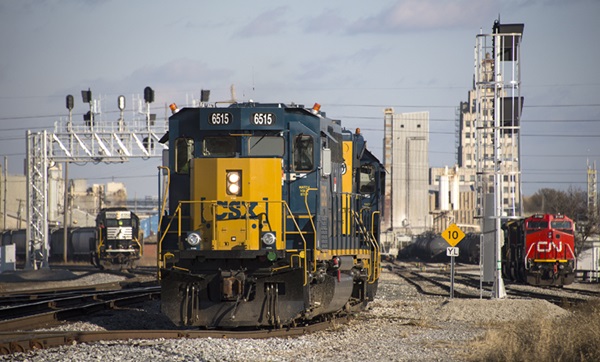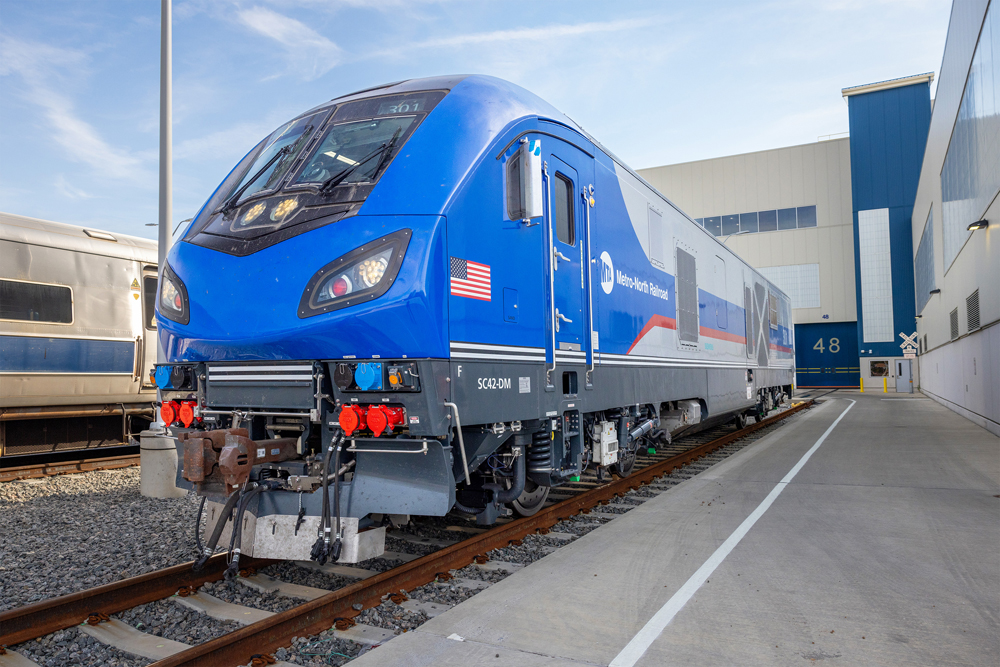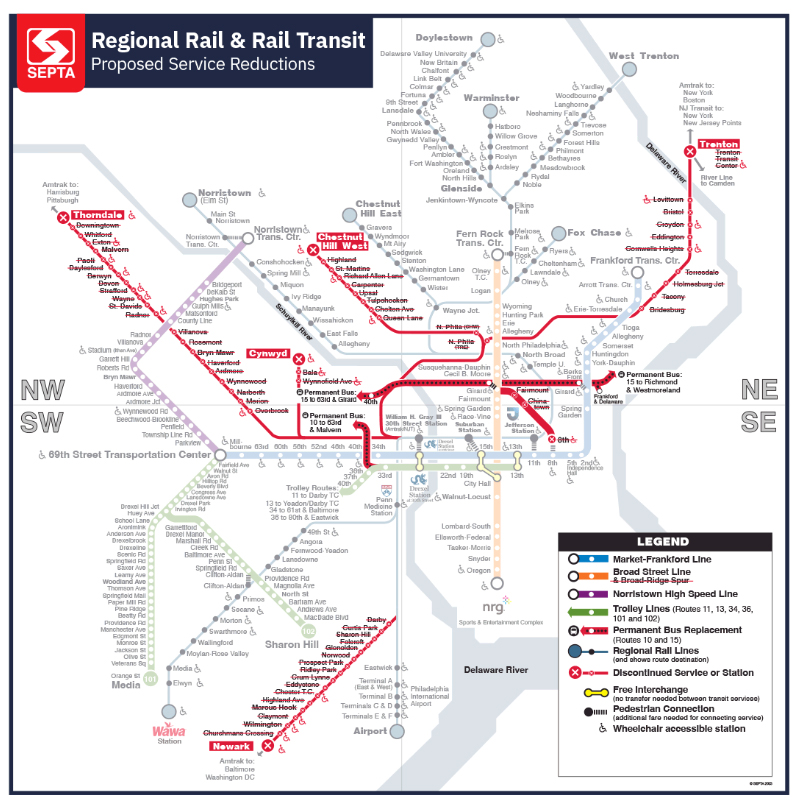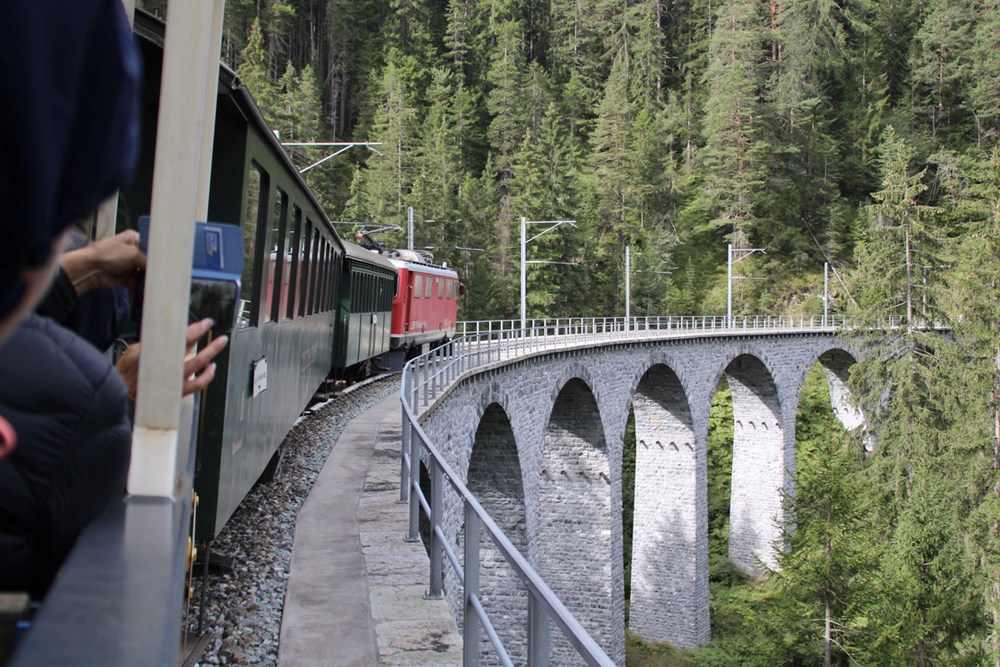WASHINGTON – A U.S. DOT report critical of railroads discusses pandemic-related supply chain problems and cites concerns with Precision Scheduled Railroading, Class I railroad consolidation, and rising railroad rates.
Among the recommendations in the 141-page report, released on Thursday in response to a Biden administration executive order issued a year ago: Increased regulation of freight railroads.
“Existing regulations may need to be strengthened to address competition (such as economic regulation of railroads or ocean carriers) or other marketplace issues that are only revealed when the system is under extreme supply and demand pressures,” the report says.

The Association of American Railroads criticized some of the report’s conclusions, noting that many of the bottlenecks railroads faced in 2020 and 2021 were due to factors outside the industry’s control, such as labor and container chassis shortages and a lack of warehouse capacity.
“Make no mistake: the recommendation for federal regulators to impose new economic regulations is at direct odds with the stated goals of this report to increase freight fluidity and would also lead to freight diversion away from railroads that would hinder the White House’s other stated goal of reducing carbon emissions,” AAR CEO Ian Jefferies said in a statement. “The current push at the Surface Transportation Board to impose reciprocal switching regulation would create inefficiencies, inhibit investment and in turn make rail transportation less competitive.”
The report notes that railroads have taken steps to reduce waste and improve safety and efficiency. “But poor implementation can come at the cost of jobs and resilience, as workers are asked to do more with less. For example, the number of Class I railroad employees has declined by nearly 25 percent over the past two years,” the report notes.
The document also takes aim at Precision Scheduled Railroading, the low-cost operating model now in place on all of the Class I systems with the exception of BNSF Railway.
“Railroads have increasingly adopted precision railroading, due at least partially to pressure from investors seeking to prioritize reducing operating ratios and increasing stock value over transportation efficiency and resilience,” the report says. “This business practice relies on longer trains to reduce costs; however, some shippers have complained that the practice has reduced performance and resilience, disrupted service schedules, and increased demurrage charges.”
The report footnotes shipper complaints aired at a House Transportation and Infrastructure subcommittee hearing from 2019. Railroads were not represented at the session.
The report was critical of consolidation in the rail industry, which has seen the number of Class I railroads shrink from 26 in 1980 to seven today. “Across much of the country, Class I railroads have few competitors within the geographies they serve,” the report says. “One analysis by a rail industry advocacy group indicates that rail shippers are bearing the financial burden of railroad consolidation.”
Rail rates have increased 96% since 2002, compared to 40% for trucking, the report notes, citing data from the Rail Customer Coalition, a shipper lobby group representing an array of manufacturing, agricultural, and energy industries that rely on railroads.
The report encourages the STB to require freight railroads to permit passenger railroads to use their tracks, and called for freight railroads to treat each other fairly.
The AAR contends that shippers are trying to exploit pandemic-related supply chain problems. “The report’s discussion and policy recommendations directed at the U.S. freight rail sector … raise concerns that powerful special interests are coopting logistics challenges created by the pandemic to obtain below market rates and pad their own profit lines,” Jefferies said.
He adds: “Freight railroads submitted extensive comments to the DOT’s request for information to help develop this report, so it is unfortunate the report ignores those suggestions and comments and instead focuses on matters that would actually disrupt the fluidity of supply chains.”
But the DOT report critical of railroads did contain some bright spots.
It acknowledged that port and intermodal terminal congestion was largely beyond the control of railroads and recommended that all parts of the supply chain operate 24/7. The Class I railroads told the STB last year that one solution to intermodal congestion would be for ports and warehouses to operate around the clock, as railroads do.
The report also encouraged ongoing investment in short line railroads as well as intermodal and port facilities.














I want to see a western Class 1 have the balls to file with the STB that they are building to the East Coast without any stops in Chicago. They are going to sell $2 billion in bonds, want some tax breaks and enforcement of their current authority to support the effort.
If the STB won’t allow any more mergers and end to end fluidity is the overarching goal, then let them go for it.
Then they can win all the UPS, USPS, FedEx, JB Hunt express traffic they want with end to end service and no more Chicago baloney as the excuse. The 2 eastern roads are too weak to support such risk, but BNSF and UP aren’t.
I am tired of Wall Street twisting the turnip dry of risk, let them go for it.
2 billion might get one of them to the Ohio-Indiana state line although I am dubious. Property costs and environmental costs would be horrendous. There is a reason why it is faster to drive from Altoona Amtrak station to Pittsburgh Amtrak station than the fastest PRR train ever, the Pennsy Aerotrain.
Laughed when I read that rail rates have gone up 96% since 2002, compared to 40% for trucking. As an operator of a small fleet of trucks, trucking rates should as well gone up 96% over this time. Even with all the Covid strangeness, and the resulting rate increases, trucking is still way too cheap. Obviously fuel, but also equipment, maintenance, and labor has doubled, or more in the last 20 years. It’s as though all the trucking folks should read this and say “Hey, wait a minute…!!”
Let’s do the same kind of in depth investigation of Wall Street and find out what’s really causing all the problems in all industries…unlike J Robert Wayman above, I can tell you it’s consolidation that has caused all the issues, but WALL STREET and Wall Street alone.
Your two comments seem to contradict each other. Also your comment about T.R needs further explanation– as TR built up the miliary. Additionally, China was under the thumb of multiple foreign powers at the time adn Russia was still Czarist Russia– the USSR was not formed for another decade after T.R.’s presidency.
The pendulum swings. T.R. Roosevelt . faced the Oligarchs that were dominating many industries (OIL, RAIL, STEEL) and creating monopolies and because of their excesses, became known as a TRUST BUSTER. Big wants to get bigger. We are experiencing Domination of many industries as consolidation has occurred. Teddy broke up monopolies. We got the ICC to control RR’s. In the thirties, after the bankers could not keep liquidity, F.D.R.
initiated more regulation. Now the Drug Companies, Agriculture (Meat Packers, Telecom, Etc… have consolidated market power. And Railroads control many territories and shippers have lost must control of the rates they are charged. And the money people DEMAND more profits and put pressure on the Company Executives to deliver. The BIG want to get BIGGER. And without checks and balances, Government is the only method to restrain the greedy from their excesses. Perhaps the time is NOW
Had T.R. not been allowed to do what he did, the U.S. would be dominating the world stage today and China and Russia would have to bend to our rule…that’s what would’ve happened.
And you, Gerald, would not be able to afford the gas to get the the store, or the electricity to power your screed to this and other such forums.
If you want to live in a monopolistic society, there are some out there that would love to have you for fodder. But leave me out. I’m no socialist but Mr. Wayman is right.
When I see all the just basic commodities moving on giant trains on CSX’s A-Line and read these sorts of NewsWire reports I sometimes wonder how long ’til the remaining Class I’s are treated like regulated utilities.
While I agree the Class 1’s could be doing a lot better, I fear more government involvement would create more problems then it would solve. The biggest problem as the report mentioned is the pressure from the investors. I also don’t like that the report basically says the RRs should have no say in Amtrak operations on their rails.
I could support something like a mandated oversight that that determines the Class 1 RRs are keeping their physical plant in good shape so the investors can’t force them to only focus on the short-term.
STEVE — I’m no fan of government, no fan of regulations, and certainly no fan of Biden or Buttigieg. I’d say this, however. It would have paid the Class 1 RRs to have been reading these forum pages. How long have knowledgeable people been posting on these pages that the Class 1’s are walking right into it? Hello, Federal Register! Re-regulation coming to a freight railroad near you!
Soon former president Jimmy Carter will pass on to his next life. The newspaper comment sections will be filled with conservatives calling him an economic illiterate and the worst president ever etc etc etc. Won’t be me. Jimmy Carter deregulated the railroads (and other modes) directly leading to the prosperity of the decades to follow, benefiting all parties – the carriers, the shippers, and consumers. For decades the railroads did well under de-reg. Now they’re blowing it.
LOL, it’s our customers who are greedy, not us! I hope that statement gets shared around.